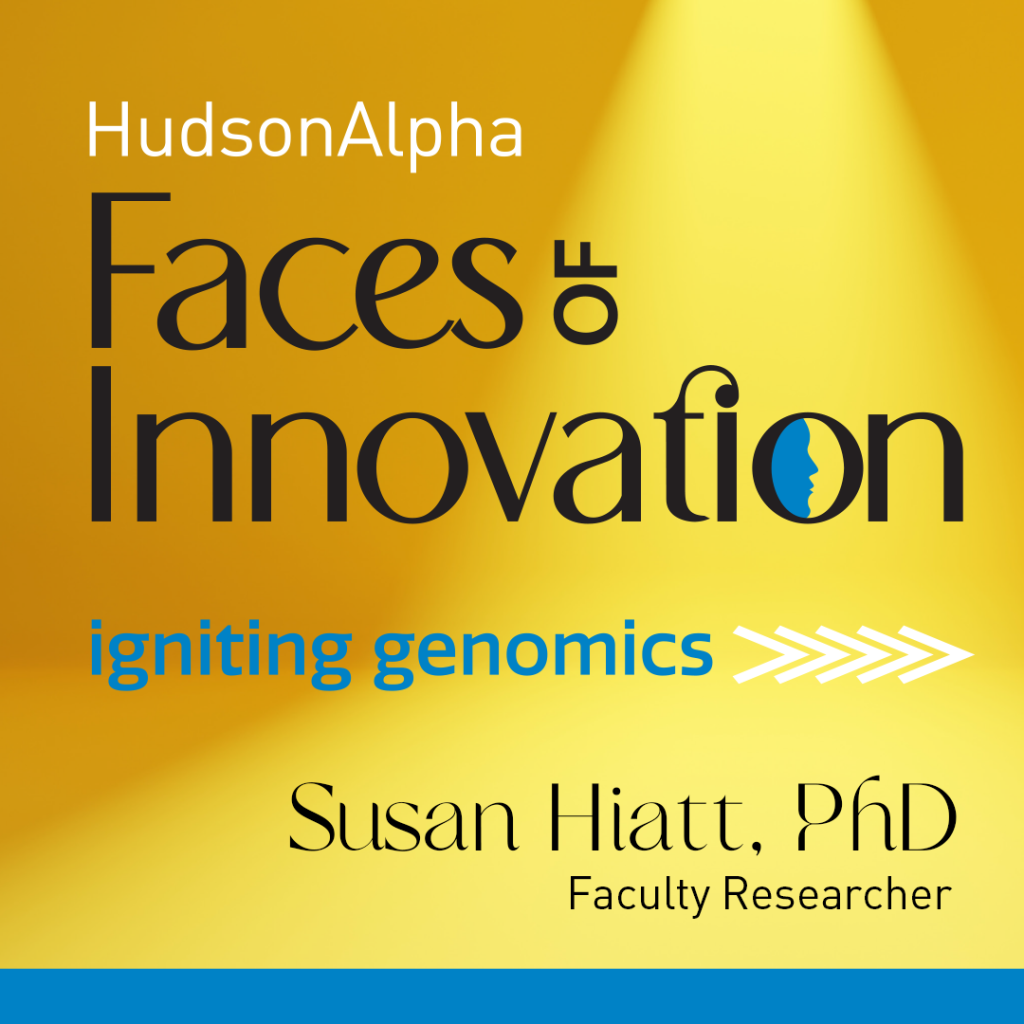A longtime friendship between two prominent geneticists lent an air of camaraderie to the weekly seminar series at the HudsonAlpha Institute for Biotechnology.
Robert Kingston, PhD, presented his research on the nucleosome’s role in regulation at HudsonAlpha on Wednesday, October 21. The seminar was hosted by Richard Myers, PhD, president and science director of HudsonAlpha; and Eric Mendenhall, PhD, adjunct faculty member at HudsonAlpha and assistant professor at the University of Alabama in Huntsville.
“Bob Kingston has been a leader in his field for decades, and this seminar was a great opportunity to hear him present and interact with us,” Mendenhall said. “Dr. Kingston’s visit was an opportunity to showcase HudsonAlpha and the amazing science we do here.”
Kingston, who is a professor of genetics at Harvard Medical School and chief of the department of molecular biology at Massachusetts General Hospital, opened his talk with a few jokes about the time he spent working with Myers. The two scientists have known each other since they met in graduate school at the University of California, Berkeley in 1977.
“Rick was more responsible for me enjoying and succeeding in graduate school than anyone because of his ability to be open and welcoming and have people over to dinner and for shipping in containers of barbecue sauce from Dreamland in Tuscaloosa,” Kingston said.
In his presentation, Kingston said he wanted to convince his audience that the physical location and state of nucleosomes in the cell is interesting and important to consider. The nucleosome is a section of DNA that is wrapped around a core of proteins and linked together like beads on a string. The string of beads is called chromatin. Each of the nucleosome beads is only 11 nanometers across. In comparison, a human hair is about 80,000 nanometers across. That’s like the difference between an inch and a 200-meter sprint.
The string of nucleosomes coils into a smaller fiber, which packs down even further in a process called compaction to eventually form chromosomes that convey DNA from parent to child.
Kingston’s lab is studying the role of the nucleosome in regulating how a person’s physical characteristics are caused by environmental factors that switch genes on and off and affect how cells read genes instead of directly changing the DNA sequence. His team is also examining methods to make the nucleosome easier to access through all that compaction.
This visit to HudsonAlpha was Kingston’s first trip to Alabama. “It’s a real pleasure to be here,” he said. “And it’s particular pleasure,” he added, “being at a certain age, to still be doing science. If anybody had told Rick and I in 1977 that in 2015 we’d still be actively involved in science I don’t know if I would have believed them. But it’s fun that we are.”
The next HudsonAlpha seminar will be Wednesday, Oct. 28, featuring Dr. Charles Lee from the Jackson Laboratory.

